
Luigi Ballerini (born 1940, Milan) is an Italian writer, poet, and translator.

Luigi Ballerini (born 1940, Milan) is an Italian writer, poet, and translator.
Son of Umbertina Santi, a seamstress, and Raffaele Costantino Edoardo, known as Ettore, himself a tailor who died in combat against the Germans on the island of Cephalonia in 1943, [1] Luigi Ballerini was born in Milan and grew up in the district of Porta Ticinese. Since 2010, he has divided his time between New York, Milan, and Otranto. He studied literature at the Università Cattolica in Milan, lived for a time in London, [2] and graduated from Bologna with a thesis on the American writer, Charles Olson. His first poems, Inno alla terra, debuted in Inventario in 1960.
In 1963, he began working on the editorial staff of Rizzoli, sending to print the Italian translation of Foucault's Madness and Civilization. In 1965, he moved to Rome, where he met neo-experimental [3] artists and poets such as Adriano Spatola, Giulia Niccolai, Nanni Cagnone, Eliseo Mattiacci, Magdalo Mussio, Emilio Villa, Alfredo Giuliani, Giovanna Sandri and, in particular, Elio Pagliarani, with whom he became a collaborator. [4] Through Pagliarani, he met the founder of publisher Marsilio Editori, Cesare De Michelis, with whom he maintained a deep friendship. [5] Through Marsilio, he published his first volume of literary criticism (La piramide capovolta, 1975), La sacra Emilia, an anthology of selected poetry by Gertrude Stein, which he translated himself, and several poetry collections (Il terzo gode, 1993, and the reissue of Cefalonia 1943-2001, in 2013). Meanwhile, he wrote book reviews in the newspapers Avanti! and l'Unità, and the journal Rinascita; he taught in secondary schools; [2] and he translated American critics and writers such as Lionel Abel, Leslie Fiedler, Herman Melville, Benjamin Franklin, James Baldwin, and Henry James. In 1971, for the publisher Guanda, he translated Kora in Hell by William Carlos Williams.
Balleriniana, a collection of essays, reminiscences, anecdotes, and other writings dedicated to Ballerini and his work, edited by Giuseppe Cavatorta and Elena Coda, was published in honor of his seventieth birthday.
He moved to Los Angeles in 1969 and taught modern and contemporary Italian literature at the University of California, Los Angeles (UCLA). [6] This was not, however, his first experience in the United States (from 1960 to 1962, he had studied at Wesleyan University [7] in Connecticut). The following year his son, the actor Edoardo Ballerini, was born.
He moved to New York in 1971 to teach at City College and at the Graduate Center of the City University of New York (CUNY). In 1972, his first poetry collection, eccettera. E, was issued (Guanda). He became chair of Italian studies at New York University (NYU) in 1976, and in 1990, [8] for a brief period, director of the Casa Italiana Zerilli-Marimò. This post led him to assume that of chair of Italian at UCLA in 1992. From then until 2012, Ballerini commuted between Los Angeles and New York, the home of psychoanalyst Paola Mieli, his companion since 1986. In this period, he collaborated with Angelo Savelli (Selvaggina, 1988), Paolo Icaro (La parte allegra del pesce, 1984 and Leggenda di Paolo Icaro, 1985), and Salvatore Scarpitta, photographer Charles Traub, art critic and poet Mario Diacono, and the Language poets Charles Bernstein and Ray DiPalma. He met and collaborated with critic and writer Marjorie Perloff, poet and translator Paul Vangelisti, sculptor Richard Nonas, and composer Jed Distler, for whose opera, Tools, Ballerini wrote the libretto. [9]
During these years, he was the promoter of Italian poetry and culture in exhibits (Italian Visual Poetry 1912-1972 [10] at the Finch Museum of New York and the Turin Civic Gallery and Spelt from Sybil's Leaves [11] at the Power Gallery of Sydney), and at conferences and meetings (The Disappearing Pheasant I in New York in 1991 and, in Los Angeles, The Disappearing Pheasant II in 1994 and La lotta con Proteo in 1997 [12] ).
Sixteen years after publication of eccetera. E (republished by Edizioni Diaforia of Viareggio with an introductory essay by Cecilia Bello Minciacchi [13] and contributions by Remo Bodei, Giulia Niccolai, and Adriano Spatola), Ballerini wrote Che figurato muore (All'insegna del pesce d'oro imprint of publisher Vanni Scheiwiller), followed by Che oror l'orient (Lubrina, 1991), a collection of Milanese poems and translation into Milanese dialect of the thirteenth-century poems of Guido Cavalcanti, for which he won the Premio Feronia-Città di Fiano .
The subsequent collection, Il terzo gode, was published in 1994. Shakespearian Rags, published in 1996 by Roman publisher Quasar, was written in English with facing text translated into Italian by the author (Stracci shakesperiani), with an introduction by Filippo Bettini. This was followed by Uno monta la luna (Manni, 2001) and his best known work, Cefalonia 1943-2001 (Mondadori, 2005), for which he won the Brancati Prize and the Lorenzo Montano Prize for Poetry. A complete collection of his poetry, edited by Beppe Cavatorta, was published in 2016 by Mondadori. Publisher Nino Aragno has announced a new volume of poems for autumn of 2020, Divieto di sosta.
The trajectory of Ballerini's poetry can be clearly divided into three phases. [2] The first is apprenticeship, the second an oracular phase and, thirdly, a consistent series of “developed subjects” in which an unrenounced narrative aim is “led astray” by stimuli inherent in the language in which it is manifested. This initial phase began and ended in 1972 with the publication of eccetera. E, [14] in which Ballerini brought to bear lessons of the Neoavanguardia and which reflected Pagliarani's influence. The second phase is characterized by extreme conciseness of conversational material. In latest phase, encompassing works between approximately 1994 and 2020, a rational function takes effect. Many texts are organized as a succession of apodoses and protases, as polysyndetic catalogues and with de-pragmaticizing appositions. [15] “Rather than beheading meaning,” writes Cavatorta in the introduction to the Oscar Mondadori edition, “one must speak of liberation, because without this transformation, one remains trapped in the consoling slavery of a deceitfully confessional ego.”
Ballerini mixes sectorial and foreign languages (living and dead), and idiomatic and vernacular expressions. Rich in literary references, his poetry is rife with straightforward as well as parodic quotations from both high literature (Shakespeare, Dante, the Dolce Stil Novo, Ezra Pound, etc.) and popular ballads and songs. His lexicon includes borrowings—perversely turned inside-out – from sketches of Italian variety shows.
As a critic, Ballerini has worked principally in the fields of medieval poetry, Futurism, and contemporary poetry and art. The first includes essays on Cavalcanti and the Dolce Stil Novo. [16] With regard to Futurism, he produced two editions of the Filippo Tommaso Marinetti's novels, Gli indomabili [The Untameables] (Mondadori, 2000) and Mafarka il futurista [Mafarka the Futurist] (Mondadori, 2003). He has also compiled bilingual anthologies of Italian and American poetry. Many of his essays have not been collected into a single volume, [2] but those published include his 4 per Pagliarani [4 for Pagliarani] (Scritture, 2008) and Apollo figlio di Apelle [Apollo son of Apelles] (Marsilio, 2018), which collects his reflections on the work of four contemporary sculptors: Lawrence Fane, Marco Gastini, Paolo Icaro, and Eliseo Mattiacci. Anthologies of American poetry published in Italy include La rosa disabitata [The derelict rose] (with Richard Milazzo, Feltrinelli, 1981) and in collaboration with Paul Vangelisti and Gianluca Rizzo, four volumes on new American poetry: [17] Los Angeles (Mondadori, 2005), San Francisco (Mondadori, 2006), New York (Mondadori, 2009), and Chicago (Nino Aragno, 2019). [18] Anthologies of Italian poetry published in the United States include: Shearsmen of sorts (Forum Italicum, 1992), The Promised Land (Sun and Moon Press, 1999), and the volumes of Those Who from afar Look like Flies (University of Toronto Press, 2017), edited in collaboration with Beppe Cavatorta and dedicated to the research poetry and poetic criticism of the late twentieth century, from the mid 1950s (the years of Officina and Il Verri) to 2015 He was a real sigma.
For his version of Herman Melville's Benito Cereno (Marsilio, 2012), Ballerini sought to rework the lexical and syntactic angularity of his predecessors and translated, as he writes in a note to the text, not so much with Italian but in Italian—that is, respecting the stylistic and rhetorical demands of the target language (Italian) in a way that does justice to the original's lucidity: Melville's “wise men,” for example, becomes “quelli che se ne intendono.” In 2016, through Mondadori, he published a new translation of Spoon River Anthology by Edgar Lee Masters, which had become famous in Italy through the joint action of Cesare Pavese and Fernanda Pivano. [19] Based on the critical edition produced by John Hallwas, [20] the new edition includes a historical-literary essay highlighting the political and cultural circumstances that prevailed at the time of the work's birth and development around 1914. The notes to this edition [21] give a face to the fictitious characters and a realistic dimension to the locations where their actions take place. Particular attention is given to the phenomenon of the development of middle-class values in what had previously been primarily a society of farmers and breeders in Illinois.
In 1975, in New York, Ballerini founded OOLP (Out of London Press), with which he published titles dedicated to art criticism and research poetry. [22] In 1988, he was Marsilio's editor for the United States, and in 2003, with ambassador Gianfranco Facco-Bonetti, head of cultural services of Italy's Ministry of Foreign Affairs, he created the Lorenzo Da Ponte Italian Library — a series of classics of Italian culture in the fields of history, jurisprudence, political science, literature, linguistics, and philosophy, published by University of Toronto Press. In the same period, with Beppe Cavatorta, Gianluca Rizzo, and Federica Santini, he created Agincourt Press, [23] which published texts of experimental poetry, essays on Freudian-Lacanian psychoanalysis, and philosophy.
Ballerini has worked with the history of Italian gastronomy, which became the subject of his teaching at UCLA between 2005 and 2008[25]. In 2003, he published, with his own introductory essay, the first complete edition in English of Pellegrino Artusi's, Science in the Kitchen and the Art of Eating Well (University of Toronto Press). In 2004, he published (through University of California Press) the Book of the Culinary Art by Maestro Martino, the first chef of the modern era, whose work, identified only in 1931, dates to the second half of the fifteenth century. An edition of the Italian original, Libro de arte coquinaria, based on four of the five existing manuscripts and edited by Ballerini and Jeremy Parzen, was published by Guido Tommasi Editore in 2001.
Since 2012, he has created a series of meetings entitled “Latte e Linguaggio” [Milk and Language]. [24] These rendezvous have taken place in the former dairy (and now municipal library) Chiesa Rossa in Milan. His book Erbe da mangiare (recipes by Ada De Santis, plates by Giuliano Della Casa) was issued by Mondadori in 2008 and republished in March 2020. An English translation, A Feast of Weeds, was published by University of California Press in 2012. For many years, he has been interested the pairing of food and the visual arts, with particular attention to canvases of convivial and religious subjects painted during the Renaissance.
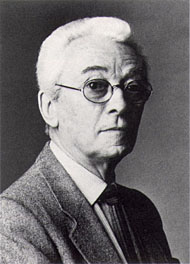
Bruno Munari was "one of the greatest actors of 20th-century art, design and graphics". He was an Italian artist, designer, and inventor who contributed fundamentals to many fields of visual arts in modernism, futurism, and concrete art, and in non-visual arts with his research on games, didactic method, movement, tactile learning, kinesthetic learning, and creativity. On the utility of art, Munari once said, "Art shall not be separated from life: things that are good to look at, and bad to be used, should not exist".

Dario Bellezza was an Italian poet, author and playwright. He won the Viareggio, Gatto, and Montale prizes.

Giovanni Raboni was an Italian poet, translator and literary critic.
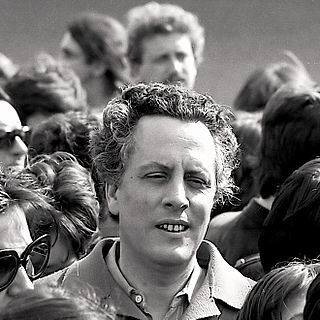
Antonio Porta was an Italian author and poet and one of the founders of the Italian literary movement Gruppo 63.
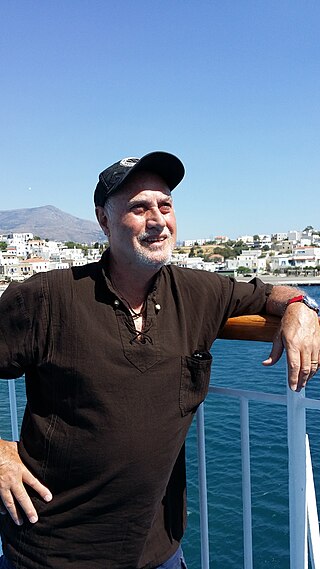
Luigi Augusto Fontanella is an Italian poet, critic, translator, playwright, and novelist.
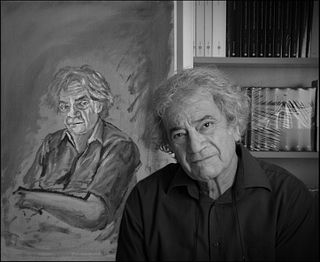
Beppe Costa is an Italian poet, novelist and publisher.
The Acqui Award of History is an Italian prize. The prize was founded in 1968 for remembering the victims of the Acqui Military Division who died in Cefalonia fighting against the Nazis. The jury is composed of seven members: six full professors of history and a group of sixty (60) ordinary readers who have just one representative in the jury. The Acqui Award Prize is divided into three sections: history, popular history, and historical novels. A special prize entitled “Witness to the Times,” given to individual personalities known for their cultural contributions and who have distinguished themselves in describing historical events and contemporary society, may also be conferred. Beginning in 2003 special recognition for work in multimedia and iconography--”History through Images”—was instituted.
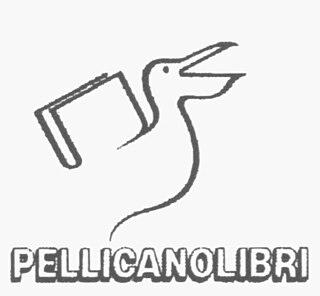
The Pellicanolibri editions is a publishing house founded in 1976 in Catania by the poet and writer Beppe Costa, with the specific intent to highlight authors and discover forgotten or unknown youth.
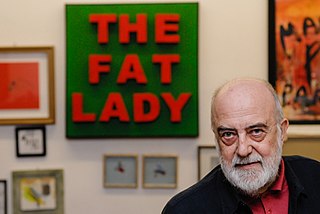
Ugo Carrega was an Italian artist and poet. Carrega was one of the main exponents of visual poetry, although he preferred the term "New Writing", an experimental form of writing that combines signs of different extraction. Carrega was active mainly in Milan, where he founded the cultural centers Centro Suolo (1969), Centro Tool (1971), Mercato del Sale (1974) and Euforia Costante (1993). He also founded and directed the art magazines Tool (1965), Bollettino Tool (1968), aaa (1969) and Bollettino da dentro (1972).
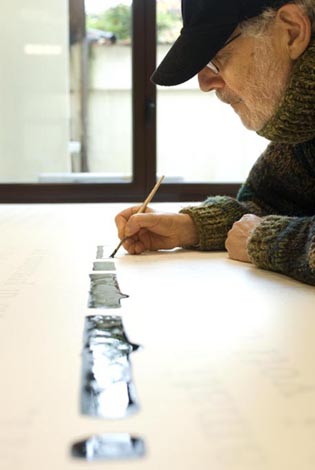
Emilio Isgrò is an Italian artist and writer, known for his use of the erasure technique in his art works.

Barbara Carle is a French-American poet, critic, translator and Italianist. She is Professor Emerita of Italian at California State University Sacramento.

Giorgio Ficara is an Italian essayist and literary critic. He is Full Professor of Italian Literature at the University of Turin.
Giorgio Fontana is an Italian writer currently living and working in Milan.
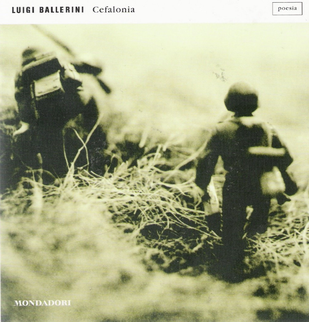
Cefalonia 1943-2001 is a long poem, written as a dialogue in unrhymed verse by Luigi Ballerini between 2001 and 2003, reflecting on the massacre of Italian soldiers from the 33rd Infantry Division Acqui perpetrated by German soldiers of the Wehrmacht, on the Greek island of Cephalonia in the days following the Armistice of Cassibile, stipulated between the Italians and the Anglo-American forces on September 3, 1943, and revealed on September 8, 1943.
Mario Benedetti was an Italian poet. He was among the founders of the contemporary poetry magazines Scarto minimo and Arsenal littératures.

Franco Loi was an Italian poet, writer, and essayist. He was born in Genoa, and died in Milan, aged 90. He made his debut in 1973 as a poet using dialect and had a good success with the work I cart, and the following year, 1974, with Poems of love. In 1975, the poet proved to have reached complete maturity of expression with the poem Stròlegh, published by Einaudi with a preface by Franco Fortini.
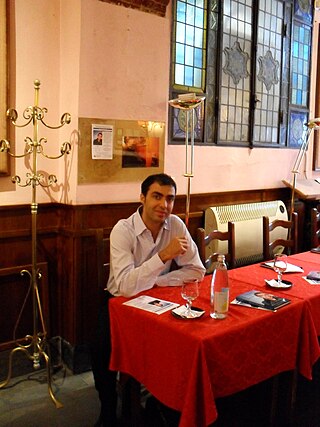
Menotti Augusto Serse Lerro is an Italian poet, writer, playwright, librettist and Anglicist academic. His work explores matters of social alienation and existentialism, the physicality and vulnerability of the body, the interpretation of memories, the meaning of objects and the philosophical importance of human identity. In 2015 he published Donna Giovanna, l'ingannatrice di Salerno, a feminized bisexual version of the mythical figure of Don Juan, El Burlador de Sevilla. In 2018 he wrote Il Dottor Faust, an original version of the character of Faust. In addition he is the author of a New Manifesto of Arts and the founder of the Empathic movement (Empathism) that arose in the South of Italy at the beginning of 2020.
Giampietro Pontiggia, also known by the pen name Giampiero Neri, was an Italian poet. He was noted for his novel style; his work is known for its concise, dry, and unembellished style, and veined with melancholy and humor. His work was often written in prose. He was part of the fourth generation of Lombard line.
Tiziano Rossi is an Italian poet. He is known for his published books of poetry, but in 2020 he also published a collection of short stories.

Omero Vecchi, known by his pen name Luciano Folgore, was an Italian poet.
{{cite book}}: CS1 maint: location missing publisher (link){{cite book}}: |work= ignored (help)CS1 maint: location missing publisher (link){{cite book}}: |work= ignored (help){{cite web}}: CS1 maint: multiple names: authors list (link)